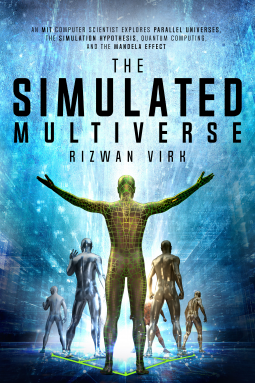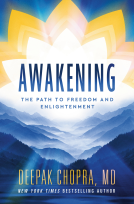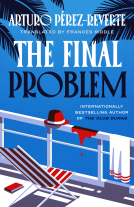
The Simulated Multiverse
by Rizwan Virk
This title was previously available on NetGalley and is now archived.
Send NetGalley books directly to your Kindle or Kindle app
1
To read on a Kindle or Kindle app, please add kindle@netgalley.com as an approved email address to receive files in your Amazon account. Click here for step-by-step instructions.
2
Also find your Kindle email address within your Amazon account, and enter it here.
Pub Date Oct 15 2021 | Archive Date Feb 15 2022
Description
Do multiple versions of ourselves exist in parallel universes living out their lives in different timelines?
In this follow up to his bestseller, The Simulation Hypothesis, MIT Computer Scientist and Silicon Valley Game Pioneer Rizwan Virk explores these topics from a new lens: that of simulation theory. If we are living in a digital universe, then many of the complexities and baffling characteristics of our reality start to make more sense. Quantum computing lets us simulate complex phenomena in parallel, allowing the simulation to explore many realities at once to find the most "optimum" path forward. Could this explain not only the enigmatic Mandela Effect but provide us with a new understanding of time and space?
Bringing his unique trademark style of combining video games, computer science, quantum physics and computing with lots of philosophy and science fiction, Virk gives us a new way to think about not just our universe, but all possible realities!
Available Editions
| ISBN | 9781954872004 |
| PRICE | |
Average rating from 5 members
Featured Reviews
 Diane H, Reviewer
Diane H, Reviewer
Are we living within a huge computer simulation? Does it work like a video game that can be replayed, over and over again, to attain a better conclusion? Is that replay effect giving many of us deja vu? In The Simulated Multiverse, a MIT computer scientist tries to untangle the truth from the fiction.
Okay, first of all, this is not just pop science. It helps to be well-educated or just plain smart to follow along on the wild ride down the possibility slide contained within this book. Does the author scientifically prove anything? No. But he does present some very intriguing possibilities that aren’t disproven by known facts.
I find science, especially new theories, fascinating. The Simulated Multiverse is an eye-opener on multiple levels. If you liked A Glitch in the Matrix, or The Matrix itself, this book goes even deeper into those same rabbit holes.
This book would also be great for science fiction writers who want to add some unusual plot points or settings to their novels. For me, The Simulated Multiverse is easily worth 5 stars and is a favorite!
Thanks to Bayview Books and NetGalley for a copy in exchange for my honest review.
 CINDEE K, Reviewer
CINDEE K, Reviewer
Rizwan Virk tackles some complex, multifaceted ideas and explains them very well; (no simple task). This book is by no means an easy read; but it is a rewarding one. I feel that my mind has been opened up to things that I had only skimmed before. The writing has very good flow. A good 4.5/5 stars for the technical readers among us. My one complaint: there were more references to the author’s previous book (the Simulation Hypothesis) than were necessary. It came across as giving it too much of a plug.
The book explores scientific areas such as physics, computer science, quantum physics, and quantum computing; with science fiction as inspiration to investigate the idea of the simulated multiverse. There is the “idea that we live in a virtual garden of forking paths”; (a quote from Jorge Luis Borges).
Starting with the works of Philip K Dick, there are many movie, story, and TV series references used to help explain different people’s thoughts and approaches on the subject; and just how much these ideas have permeated present day culture.
Explanations are very well done. A favourite quote of mine explaining quantum computing: “a qubit is a classical bit that has, for lack of a better analogy, gotten drunk and can’t decide whether its value should be 0 or 1”. Scientific reading rarely makes one laugh out loud, but the author managed this in a few places while still taking the topic very seriously.
Readers who liked this book also liked:
Alessandra Olanow
Arts & Photography, Religion & Spirituality, Self-Help
Brian Soonho Yoon
Children's Nonfiction, Crafts & Hobbies
Publishers Lunch
General Fiction (Adult), Nonfiction (Adult), Teens & YA


















